STP is popular among a lot of race car drivers. Many ordinary drivers are also aware that STP is a famous brand. However, they don’t know what this product can do. Is STP oil good for your vehicle?
STP products are safe to use in all types of engines. These products do not contain any substance that will corrode or harm your engine. As for your concern about whether it is suitable for your car depends on how you use it on your engine.
STP is a form of engine oil treatment that can lessen friction, mitigate engine wear, and improve engine oil performance. It delivers all these benefits to the engine by giving a thicker cushion between its metal components that constantly make contact with each other.
Read on to learn more about STP, what it is for, if it is suitable for your car, and how to use it.
Also, we hope you find the links here helpful. We may get a commission if you purchase something through a link on this page, so thank you.
Is STP Oil Good for Your Car?
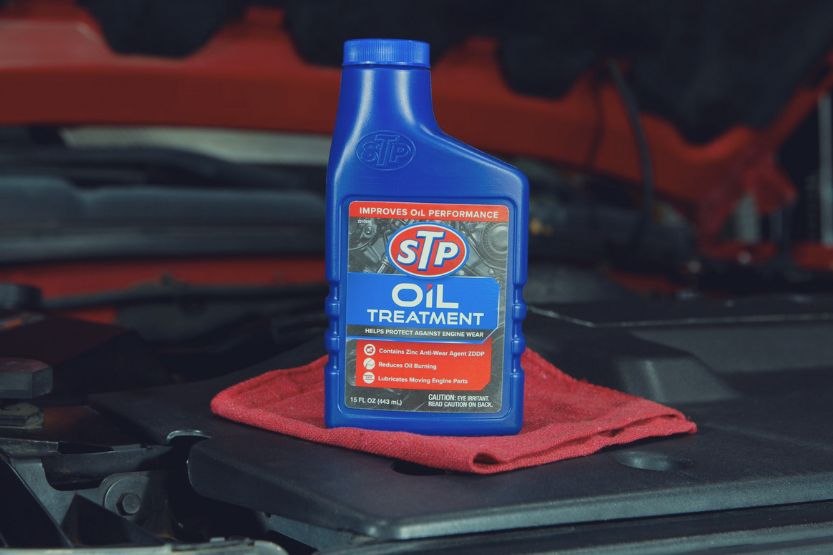
STP is a brand that makes oil treatment products safe to use in all engines since they don’t contain substances that can corrode engine parts. Its oil treatment products provide a thicker cushion between the engine’s metal parts.
As such, STP helps in protecting against engine wear and improves the performance of the engine oil. You can add this to the existing engine oil to improve engine oil performance. Whether it is suitable for your car depends on how you use it and how often you add it to the engine oil.
STP stands for Scientifically Treated Petroleum. This American brand manufactures automotive aftermarket oil treatment products such as lubricants like motor oil and engine oil additives. It was developed in 1954. Since November 2018, the STP brand name has been owned by Energizer Holdings.
Every type of lubricant is designed for a specific purpose and use. If they are used properly, they can provide good results.
So, to get the best from a particular lubricant, you need to use the appropriate product suited for your engine and use it correctly according to the instructions by its manufacturer.
Click here to see this High Mileage Transmission Formula Stop Slip and Leak Repair on Amazon.
What Does STP Do to an Engine?
Engine Oils Keep Engines Clean
Experts formulated the engine oils carefully to perform beneficial functions to a car engine, such as keeping engines clean and excellent and protecting them from corrosion, rust, and wear.
Oil Provides Lubrication
The primary function of engine oil is to provide lubrication by creating a cushion between moving engine metal parts so they can slide easily. So, metal-to-metal contact that causes friction between each engine part is reduced. This protects the engine against wear and tear.
Does STP Boost the Engine Oil’s Rating?
In this regard, does STP boost the rating of the engine oil? There is no way to know if STP enables the engine oil rating. You need to understand the American Petroleum Institute rates that engine oils.
The API based its engine oil rating on whether a particular motor oil satisfies its particular lubrication requirements for several factors, including lubrication, anti-foaming, and anti-oxidation.
Oil Additives Modify the Oil Viscosity
STP is an aftermarket oil additive. There is no way of knowing whether it can boost the rating of engine oil. Generally, oil additives modify the oil viscosity instead of improving its rating initially given by the API.
SG Contains Around 40-60% Additional Adidtives
SG, the highest oil rated by the API, already contains around 40% to 60% additional additives that the refiner has already put in – higher than the previous oils that were SF-rated.
The refiner already added viscosity index enhancers, rust inhibitors, foam inhibitors, and detergents. These viscosity index enhancers enable the engine oil to function with the right thickness and flow over various outside temperatures.
Adding STP Makes the Engine Oil Thicker
So, the motor oil does not become very thin when the outside temperature is hot or too thick when the weather is cold. If you add STP to the engine oil, it will become thicker. It will add another ten viscosity to the oil. If you are using 10W-30 engine oil, it will become 20W-40.
Can Help Olders Cars with Old Engines
In very few cases, thicker oil will help older cars with very old engines. The excessive oil consumption of these engines will be reduced by using STP. However, you can use a thicker grade of motor oil rather than adding an oil additive.
Provides Added Layer of Protection Againt Heat
The manufacturer of STP claims that it provides an added protective layer against the hot temperature of vehicles that have traveled more than 75,000 miles. They also claim that it enables the engine oil to keep its lubricating properties until the following oil changes.
What Are the Pros of STP?
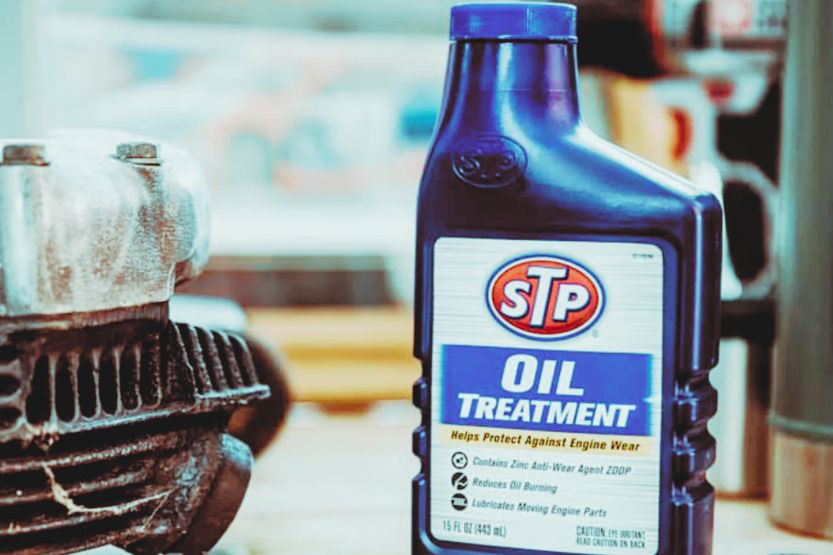
Knowing the advantages of STP will help you determine if it’s suitable for your car. What are its pros in terms of protecting your vehicle?
1. Improves the Condition of Older Engines
If you have an older engine, adding STP to its engine oil will improve its condition. While it is not as good as Royal Purple, or Mobil 1, many STP users say it is suitable for vehicles that have accumulated 5,000 to 7,000 miles on their odometers.
2. \Saves You Fuel
STP can help you save fuel more efficiently. But this is only possible when you drive your vehicle correctly and if certain conditions, such as efficient engine combustion and good weather, are met. If these factors are not satisfied, it is uncertain if STP can help reduce fuel consumption.
3. Can Improve Engine Performance
STP can help an engine improve its performance by making its engine operate more efficiently. It can make the fuel inside the combustion chambers burn more efficiently. The additives contained in STP will eliminate the unwanted combustion reaction that usually occurs during the combustion process.
4. Can Treat and Remove Soot
Over time, the engine will produce soot as a by-product of the incomplete combustion process. Soot is the accumulation of unburned gases due to inefficient combustion, resulting in the engine getting old and lacking proper maintenance.
Another problem will develop the formation of soot in the pistons of the engine, which leads to poor engine performance. Using STP will help treat and reduce the appearance of soot inside the engine.
Using STP treatment, the engine’s efficiency will improve. It ensures the fuel is burning inside the engine according to standards.
Again, is STP oil good for your car? STP products do not contain corrosive materials and are, therefore, safe for any engine.
What Are the Cons of STP?
Like any product, STP also has some disadvantages. What are these disadvantages?
1. Can Affect the Existing Additives
Modern engines are made differently than the engines manufactured many years ago. If you change or modify the recommended motor oil of the car manufacturer, it may considerably affect the engine’s performance.
On its own, the STP is already thick. You have to understand that mixing it with the existing motor oil inside the engine will affect the engine’s performance.
It can obstruct the action of the existing additives in the motor oil currently inside the engine. It may even hurt the engine when the weather is cold.
2. Not Recommended for Brand New Cars
While STP can improve the engine performance of older engines with several hundreds of thousands of miles under its belt, many car experts do not recommend it for brand-new and later car models with new engines.
STP can truly benefit older cars by improving their engines’ performance and making them last longer. But because of their thick nature and thickening ability, they can harm brand-new engines by adding more to the viscosity of the original motor oil, which is not good.
3. Increases the Viscosity of Motor Oil Inside the Engine
This may be shocking, but all car manufacturers and oil companies don’t recommend using oil additives such as STP and similar oil treatments. They are aware that STP and other oil additives will increase the viscosity of motor oil inside the engine.
So, to protect car engines, car makers and engine oil manufacturers advise car owners not to use oil additives of any brand. They say you will be better off avoiding oil additives unless your engine requires specialized, carefully evaluated, and well-understood motor oil additives.
If your engine has a mechanical issue that requires thick oil, such as STP, it is recommended that you use more viscous oil instead. It will be better for your engine, and it will be cheaper as well. They say that oil treatments and oil additives are worthless at best and harmful at worst.
Always use an oil additive prudently if you have to use an oil additive. It should not be abused. Only the suitable additive of the right amount should be used in an engine, no matter its condition.
How to Use STP?
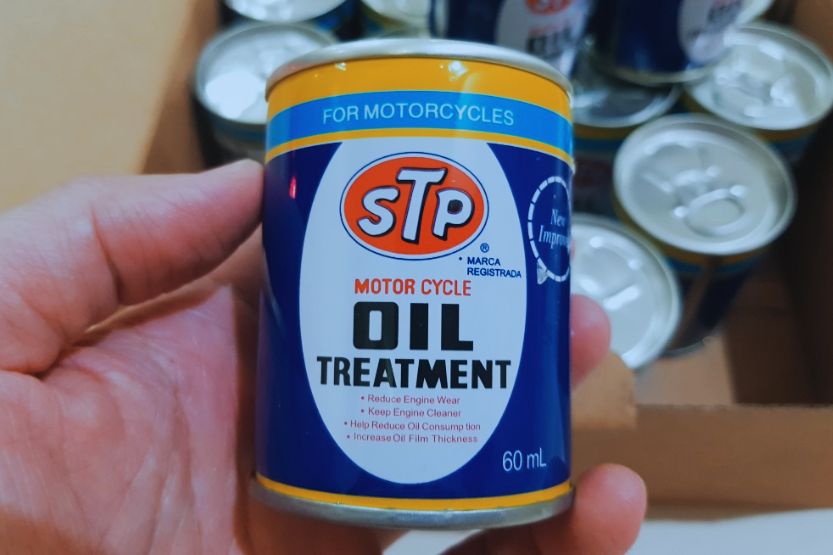
If you need to use STP as an oil treatment, you only need to pour it directly into the engine oil reservoir in the right amount, not just any amount you like.
You should add it when the engine is warm, not stone cold. Additionally, you need to give the engine around 15 minutes before pouring the STP oil treatment.
Click here to see this STP oil treatment on Amazon.
The recommended ratio by the manufacturer is one-300 ml. to 3 liters of motor oil. Another recommendation is one bottle of STP containing 450 ml. to 4 or 5 liters of STP oil. This will provide a 10% treatment rate for the existing motor oil inside the engine.
How often can you use STP oil treatment? The manufacturer recommends using it every time you have an oil change.
They claim that you can also use STP to stop minor oil leaks. They recommend adding one bottle or 15 ounces of STP to 4 to 5 quarts of motor oil.
Then run the engine for about 15 minutes to allow the oil treatment to mix with the motor oil. You should consult a qualified mechanic if oil leaks do not stop after 1,000 miles.
In Closing
You can safely use STP products on your engine. They don’t contain substances that can corrode or harm engines. Whether STP is suitable for your car depends on how you use it on your engine.
As a form of engine oil treatment, STP is designed to fight friction, slow down engine wear and improve engine performance.
As claimed by its manufacturer, this product delivers all these benefits to the engine by giving the engine components a thicker cushion between the metal parts that get into metal-to-metal contact continuously.




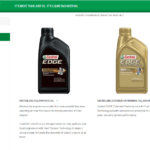
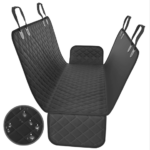

![Is Shell Gas Good for Your Vehicle? [Shell Gas Review] is shell gas good for your vehicle](https://roadsumo.com/wp-content/uploads/2022/03/is-Shell-gas-good-for-your-vehicle-150x150.jpg)


![Read more about the article eBay Motors Scam [What Are They and How to Avoid]](https://roadsumo.com/wp-content/uploads/2021/06/ebay-motors-scam-300x200.jpg)

